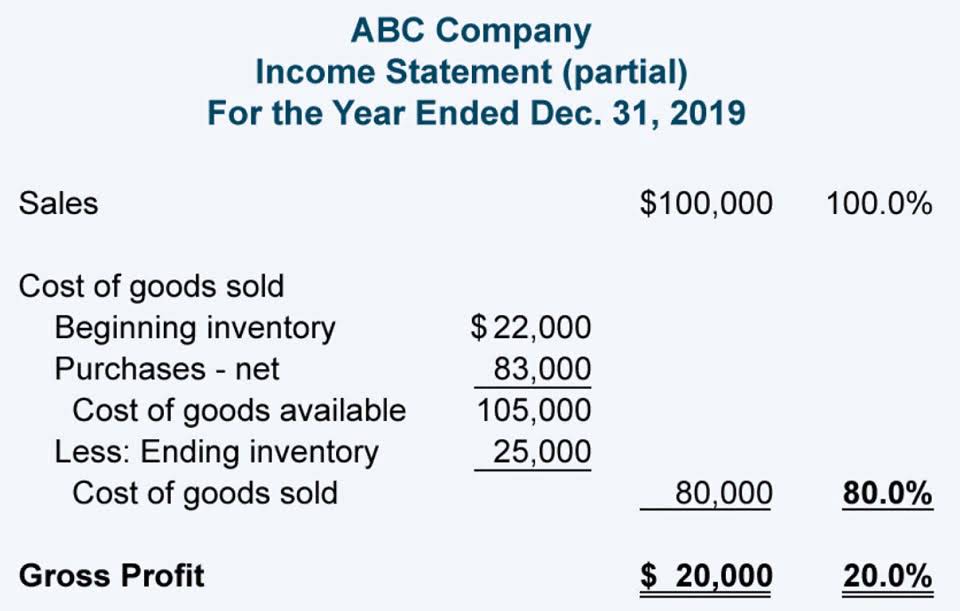The Complete Chart of Accounts for Therapists

Otherwise, your nonprofit may be unable to show that it qualifies for federal exemption and, as a result, lose its tax-exempt status. So, instead of profits, your statement of activities tracks changes in net assets. This statement of financial position is very similar to a balance sheet.

Private Practice Accounting: Tax Questions for Therapists Answered with Andrew Reisen

Your goal is to have a positive net cash flow to ensure your practice can operate, even if you’re not making a large profit. Maintaining your financial records, whether meticulously throughout the year or in periodic bursts, can often seem overwhelming. However, navigating this process efficiently is possible.In this guide, we’ll explore practical bookkeeping strategies designed to speed up your financial management and help you avoid common mistakes. Just as your therapy clients rely on your expertise for their wellbeing, your business’s financial health hinges on consistent and accurate bookkeeping. Neglecting this crucial aspect can lead to a perpetual cycle of playing catch-up with your finances and scrambling to meet tax deadlines.
QuickBooks Tip #3: Use the Right Number of Accounts
- The very first step in your private practice bookkeeping is developing a process.
- In fact, by positioning yourself in a place where you can be in constant connection with your real financial situation, your sense of responsibility and ownership will solidify even more.
- A bookkeeper keeps track of all the money that comes in and goes out of your therapy practice.
- Discover the benefits of working with a professional and how to find the perfect bookkeeper for your needs.
- Partnering with a Certified Public Accountant (CPA) or a full-service bookkeeping firm, such as Gemini, can provide significant long-term benefits.
- Even with everything I just said, I think the reason why a lot of therapists opt to do their own accounting and taxes is because they’re not sure what other options are available.
- They have access to your organization’s bank account, and work one-on-one with your bookkeeper and accountant.
Your bookkeeping system consists of the tools—typically accounting software—your bookkeeper uses to create entries in the general ledger and generate financial reports. Your treasurer may take on the role of bookkeeper for your practice. In that case, they’ll use accounting software to set up a general ledger for your organization and generate financial reports. Whether https://www.bookstime.com/ it’s understanding the nuances of tax laws, selecting the right bookkeeping software, or planning the financial future of your practice, a CFO or business coach can be a trusted ally. They can help you make informed business decisions, stay compliant with regulations, and achieve your financial goals, all while you focus on what you do best—helping your clients.
The nonprofit tax year
Still, this route has a little more support than simply doing the whole thing yourself, and is a financially accessible option for most therapists in private practice. An accountant takes the information your bookkeeper prepares, and uses it to file your tax return, taking advantage of as many tax deductions as possible. And, if you haven’t already, opting to receive your phone, internet, and utility bills by email makes it easier to enter those expenses into your DIY bookkeeping solution. Once you have a bookkeeper, you’ll be able to simply forward the receipts to them. When you use paperless recordkeeping for your therapy practice bookkeeping, you cut down on the likelihood of errors and make it easier to maintain organized records. A financial report summarizes information recorded on the books in order to give you a big picture view of how your therapy practice is performing.
- They can help you make informed business decisions, stay compliant with regulations, and achieve your financial goals, all while you focus on what you do best—helping your clients.
- It’s about making sure your practice is stable and poised for growth.
- By not experiencing a true connection with your finances because of the lack of numbers and reports you’re also experiencing loss and lack of control.
- Major accounting products, like Quickbooks, may offer special versions specifically designed for nonprofits.
- Even with an understanding of HIPAA regulations, identifying potential breaches may not always be straightforward.
- Others, like QuickBooks Online, a highly-secure platform, are transparent in that they don’t comply with HIPAA standards.
Fund accounting effectively creates a fund, for which you track assets, liabilities, revenue, expenses, and total balance. That may sound like a lot of extra work, but it has an important purpose. See our page Health Therapy Practices for more information about our services. Here’s where to find a qualified accounting professional to help with bookkeeping for your therapy practice. But with regular tracking of income and expenses, you’ll have a transparent view of your money management and you’ll never be caught unprepared for sudden expenses. You must also navigate the complexities of billing insurance companies and government programs like Medicaid and Medicare.

File with Taxfyle.
Make sure you give your books and billing the attention it deserves and invest in the right tools to streamline your bookkeeping process, whether you do it yourself or hire a pro. With financials in tip-top shape throughout the year, you can make better business decisions and rest easy knowing that you’re running a successful practice. Many healthcare professionals review their financial statements only once a year when their accountant requests financial data to prepare their taxes.
What is a Therapists Bookkeeping Template?
Like the balance sheet, your statement of financial positions gives you a picture of what your finances look at a particular point in time. If a therapist volunteers their time at your nonprofit practice providing counseling services, they’re bookkeeping for therapists providing an in-kind donation. Their time has a cash value, and must be reported as revenue in order to comply with IRS regulations. The financial reports your bookkeeper creates differ slightly from those created for a for-profit business.
Separate personal and professional transactions
In addition, every business is required by the IRS to track their finances, although the method (e.g. cash basis vs. accrual) is entirely up to you. Bookkeeping, by definition, is the process of tracking the financial activity of your business. Before we address if you’re ready to outsource your bookkeeping, let’s talk about what a bookkeeper does.
- They can provide you with all of your reports for tax time or to take to your appointment with the CPA during tax time.
- Read high quality, fact-checked articles on private practice finances.
- If you understand how your cash flows into and out of your business, you can properly pay your staff and other expenses and ensure you still bring home a profit.
- Therapeutic because managing your money, taxes and tax time shouldn’t feel stressful, chaotic, or confusing.
- Besides having an organized set of books, you also need to hold on to supporting documents and including.